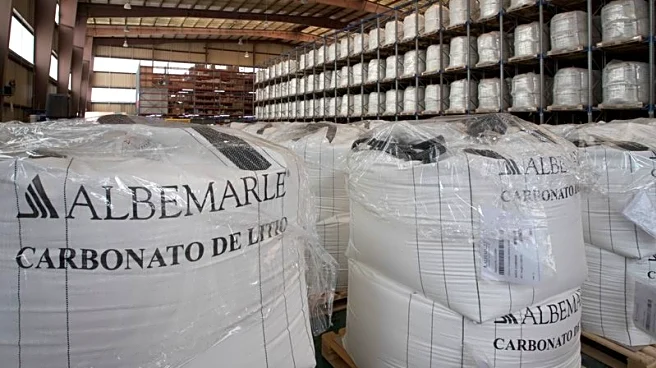What's Happening?
A major report from an international coalition of scientists, led by Oregon State University, warns that many of Earth's 'vital signs' are deteriorating, indicating unsustainable pressures on the environment
and climate. The 2025 State of the Climate report highlights record levels in 22 of 34 planetary vital signs, including fossil fuel consumption, ice loss, and ocean heat content. The report stresses the urgent need for high-impact strategies to mitigate climate change, such as transitioning to renewable energy and protecting natural ecosystems.
Why It's Important?
The report underscores the critical state of the planet's health, with implications for human health and safety. The deterioration of Earth's vital signs suggests increased risks of climate-related disasters, such as wildfires and flooding, which are already affecting communities in the U.S. The findings call for transformative changes in governance, production systems, and consumption patterns to ensure social equity and respect planetary boundaries. The report emphasizes that climate change poses a significant threat to human health, necessitating immediate action to prevent irreversible damage.
What's Next?
The report advocates for rapid transitions away from fossil fuels and the adoption of ecological economic models. It calls for international cooperation to implement climate mitigation strategies and stresses the importance of reducing greenhouse gas emissions. The scientists warn that without immediate action, processes like ice sheet loss could become self-sustaining, making them difficult to reverse. The report serves as a call to action for policymakers and the public to prioritize climate change mitigation efforts.
Beyond the Headlines
The report highlights the interconnectedness of human health and environmental stability, suggesting that adopting plant-rich diets could improve health while reducing emissions. It also points to the need for systemic changes in global food systems to support sustainable practices. The findings suggest that addressing climate change is not only about environmental preservation but also about ensuring the safety and livability of communities worldwide.










